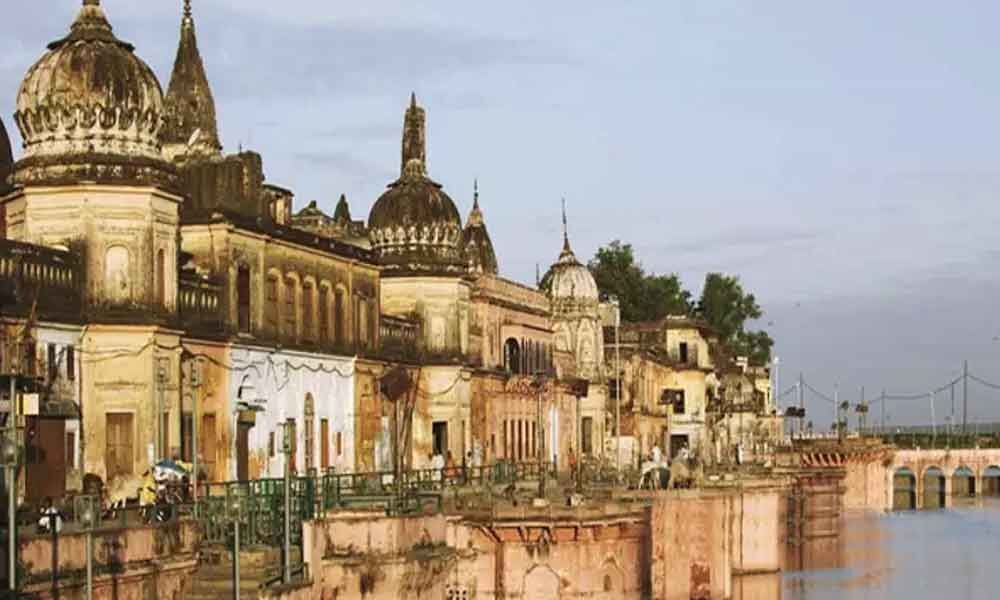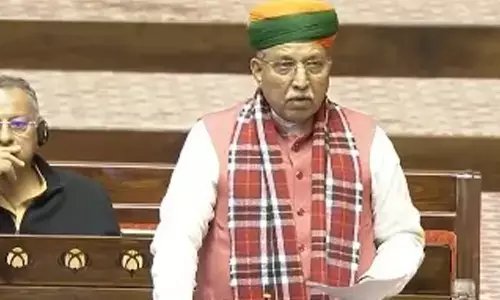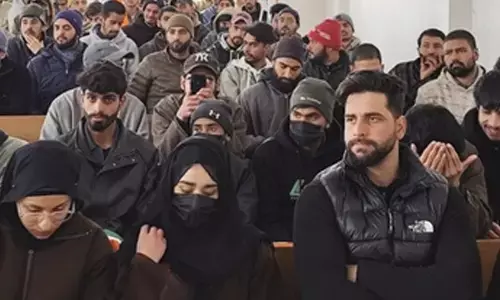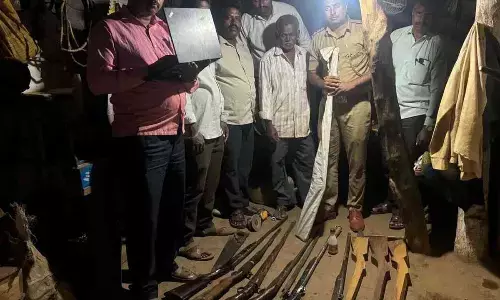Why 'Ayodhya Naresh' is not party to dispute?

He is ‘Ayodhya Naresh - the king of Ayodhya - and yet he is not a stakeholder in the Ram Janmabhoomi dispute.
He is 'Ayodhya Naresh - the king of Ayodhya - and yet he is not a stakeholder in the Ram Janmabhoomi dispute. Vimlendra Mohan Prasad Misra is a descendant of the rulers of Ayodhya and continues to be referred to as "Ayodhya Naresh" or "Raja Ayodhya" to this very day.
However, he is not a descendant of Lord Ram - Ram was a Thakur and Misra is a Brahmin.
In his late fifties, he is locally known as 'Pappu Bhaiyya' and has even had a brief stint with politics when he unsuccessfully contested the 2009 Lok Sabha elections on a Bahujan Samaj Party ticket. He has not dabbled in politics ever since.
Misra, incidentally, is the first male heir to be born into the family over several generations. Others before him had been adopted. Consequently, a security ring was thrown around him.
Later he had a younger brother Shailendra Mohan Misra. His son Yatindra Mohan Misra is a well-known litterateur.
Due to security reasons, Vimlendra Mohan Misra was not sent to the prestigious Doon school in Dehradun but was schooled at a local one.
Till he turned 14, he was not allowed to play with boys his age. He did not fly because his grandmother did not let him. He did not join politics because his mother was against it.
His grandfather, Jagdambika Pratap Narain Singh, used to hunt tigers. Two of the countless rooms in the palace are filled with his trophies. As for himself, he is content with parasailing.
The royal family of Ayodhya also has a South Korean connection. Earlier the royal family had traced its roots back to Bhojpur's landlord, Sadanand Pathak.
In South Korean literature, Ayodhya is referred to as "Ayuta". The Korean text, "Samguk Yusa", authored by the monk Iryon, mentions the temple city's Korean connection.
Some 2,000 years ago, Ayodhya's princess Suriratna sailed to Kaya kingdom, now Kimhae city in South Korea. She fell in love with its ruler, Kim Suro, and they got married.
This ancient cultural relationship was initiated in 1997 when a South Korean delegation headed by B M Kim, a descendent of King Suro, visited Ayodhya.
Vimlendra Mohan Misra had then said that "When we came to know of the Korean connection, it was a big surprise for us."
The former ruler of Ayodhya was invited by the then South Korean Prime Minister Kim Jong-pil for the annual memorial ceremony of King Suro. The South Korean government has also installed a monument in Ayodhya in their former queen's memory.
According to sources, Vimlendra Mohan Misra desperately plays down his royal lineage because he has taken keen interest in politics.
He refuses to be photographed in his royal attire and insists that he is as common as others.
Ayodhya Naresh is now keen to give a new identity to Ayodhya and plans to convert a part of his sprawling palace into a heritage hotel. Misra, for reasons best known to him, has kept himself out of Ayodhya's temple politics.
His supporters say that the decision is well thought out because he is held in high esteem by both, Muslims and Hindus. He does not wish to antagonize either of the groups by taking sides.
"The 'shiladaan' programme in 2002 was toned down only after the intervention of Ayodhya Naresh. The then Prime Minister Atal Bihari Vajpayee had personally asked him for help. The event was designed for a confrontation between the two communities," said a veteran journalist.
When contacted for his views on the prevailing situation in the Ayodhya dispute, Misra refused to be drawn into a conversation and repeatedly said: 'No comments'.
He may not have been a success in politics but has surely mastered the art of staying out of politics.














